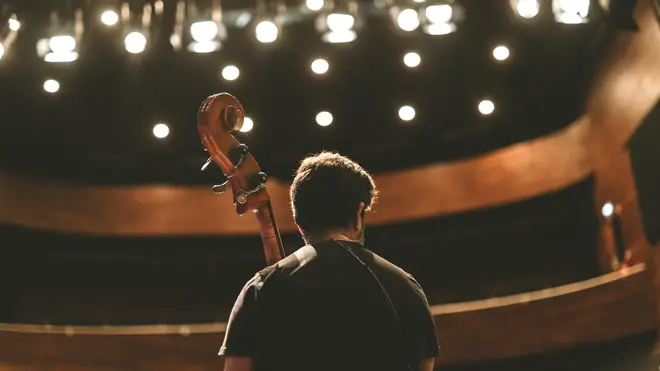On Air Now
Choirs at Christmas with Lloyd Griffith 9pm - 10pm
23 November 2021, 13:58 | Updated: 23 November 2021, 17:12

An independent study has found the music industry is one of the last to recover from the pandemic, with over a fifth of professional musicians considering a career change.
Over 80 percent of professional musicians have been unable to return to full-time work since the coronavirus pandemic.
The figure comes from a new study from the UK charity, Help Musicians, who interviewed almost 1,000 professional musicians to uncover the pandemic’s continuing impact on the industry.
The survey found a third of professional musicians were still earning nothing from music after the pandemic, with a reported nine in 10 musicians earning less than £1,000 per month.
Only the top one percent of respondents said they earn over £2,500 a month.
James Ainscough, chief executive of Help Musicians, said: “Whilst much of the economy is gradually getting back to normal, it will be a long time before musicians expect to return to their pre-pandemic income levels, as we predicted from the start of the pandemic.
“For the past 18 months, we have been supporting nearly 20,000 musicians with direct financial aid to help them pay their bills and stay afloat.”
Read more: 69,000 jobs in UK music industry wiped out by devastating impact of Covid-19
Earlier this year, we made the major move to remove all deadlines from our creative financial support to ensure musicians across the UK always have somewhere to turn to when they’re ready to progress their music, career or skillset. 🌟 pic.twitter.com/4rnXgS5x2C
— Help Musicians (@HelpMusicians) November 10, 2021
The study also found that less than a quarter of respondents were confident that they would be able to continue a career in music, while one in five (22 percent) said they were actively considering leaving the industry. This was due to a variety of issues, but prominently, financial.
These numbers match a 2020 survey by Encore musicians which reported that 27 percent of UK musicians were regularly thinking about leaving the music profession in August last year.
The lack of movement of these statistics is concerning, especially when accounting for how many professional musicians may have already left the industry during this period.
But those returning to work are hopeful for the industry’s future. Opera conductor Carlo Rizzi said, “Covid has been a disaster for the performing arts, for those who make it and for those who as audiences give it life.
“But as we come back to work, we see one small silver lining: that nothing is now taken for granted. It is great to be able to do your job in the theatre, whether you’re a stagehand, a chorus member, orchestral player, singer or conductor. I feel there’s an unspoken happiness that we can once again perform for the public. This is something to keep in mind and preserve long after the pandemic is over.”

Let Music Live protest on London's Parliament Square
The charity is quick to point out that the impact of COVID-19 has not only created financial issues.
Help Musicians has had a 60 percent increase in musicians getting in touch to access their services, which includes advice on topics such as health and wellbeing, housing, and help for older musicians.
The charity reported that one in eight of those getting in touch, cited their mental health as one of the reasons preventing them from returning to work.
“As the industry starts to recover we are shifting our emphasis towards helping musicians rebuild with a wide package of support from advice on diversifying income streams, mentoring to rebuild connections, mental health support and much more.” said Ainscough.
“We recognise that for some musicians, it will take a long time to rebuild and the team at Help Musicians will continue to be available to those musicians who find themselves in real crisis over the months ahead, ensuring we are alongside musicians every step of the way.”
On its Twitter page, Help Musicians has shared ways you can support those in the industry.
How can we all help support musicians right now?
— Help Musicians (@HelpMusicians) November 23, 2021
📀 Buy gig tickets, merch and albums where you can
📀 Spread the word of local shows
📀 #TakeaTest before attending a live show
📀 Tell your friends about the help available from Help Musicians or donate to support our work
You can find out more about the services offered by Help Musicians on its website, and support the charity’s work here.